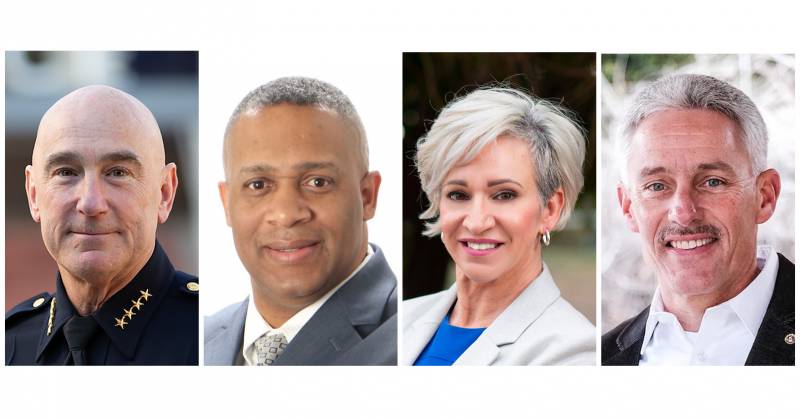Because his roommate was not at immediate risk of harming himself or others, the crisis team couldn’t force him into treatment. Then one day the roommate attacked Wakeland, and was arrested and sent to jail.
“There’s this series of events [where] you could clearly see all these cracks in the system of help that he fell through — every single one. And now they’re charging him with all these crimes that he didn’t even need to be in a position to commit,” Wakeland said.
County under pressure to expand resources
Like many other sheriff’s departments in California, Santa Clara County’s has come under fire for its lack of mental health resources, and its treatment of people who are mentally ill and incarcerated in county jails. Over the past six years, the county has settled at least three multimillion-dollar cases over incidents that left mentally ill incarcerated people permanently disabled, or dead: In 2015, three sheriff’s deputies fatally beat Michael Tyree, a 31-year-old man who had bipolar disorder.
And after the county paid a $10 million settlement to the family of Andrew Hogan, a formerly incarcerated man who became quadriplegic after suffering injuries sustained while under the sheriff’s supervision, calls for more comprehensive mental health care grew louder. Some county officials have suggested building a mental health care facility outside the jails, to treat individuals who may need medication or psychiatric care otherwise inaccessible to them.
The four leading contenders in the sheriff's race all speak to the need for better mental health resources. Bob Jonsen is promising to strengthen programs such as the one he founded as Palo Alto police chief that pairs police officers with a licensed mental health professional to get help for people in crisis. The other three candidates — Christine Nagaye, Kevin Jensen and Sean Allen — have all proposed building a new mental health facility, citing abandoned buildings and hospital grounds as potential locations.
“I think it’s a good cause, but for a candidate to say simply, this is what I’m going to do, meaning provide this facility, it’s mission impossible,” said LaDoris Hazzard Cordell, a former Santa Clara County Superior Court judge and the former independent police auditor for the City of San José. “It has to be done with the support of a board of supervisors who can allocate the funding for such a major project.”
Last year, County Supervisor Susan Ellenberg proposed diverting money and resources that were set aside to build a new jail and instead build a mental health care facility under the control of the county’s behavioral health services. But supervisors ultimately voted to build the new jail and deferred action on a behavioral health care facility into the vague future.
“How realistic is it that this can be addressed now and something can happen in our lifetimes?” asked Cordell. “It’s very realistic, in my view. It’s all about leadership.”
Last year, the office of California Attorney General Rob Bonta launched a civil rights investigation into how mentally ill people are treated in Santa Clara County jails managed by the sheriff’s department.
“There certainly has been a lot in Santa Clara County focusing on the sheriff’s office,” said Michael Gennaco, the project manager for the Office of Correction and Law Enforcement Monitoring (OCLEM).
Since its formation in 2018, OCLEM has asked the sheriff’s office to turn over documentation from internal investigations or disciplinary actions against certain officers, and has met with resistance. While Gennaco says he hopes the next sheriff will be more transparent, he acknowledges the position is an independently elected one, answerable to the voters.
“There is a different dynamic about sheriffs in California in that there are no real internal controls over how they do their work,” he said. “Santa Clara is an example of how that independence can get in the way of oversight.”
The primary election is on June 7.
